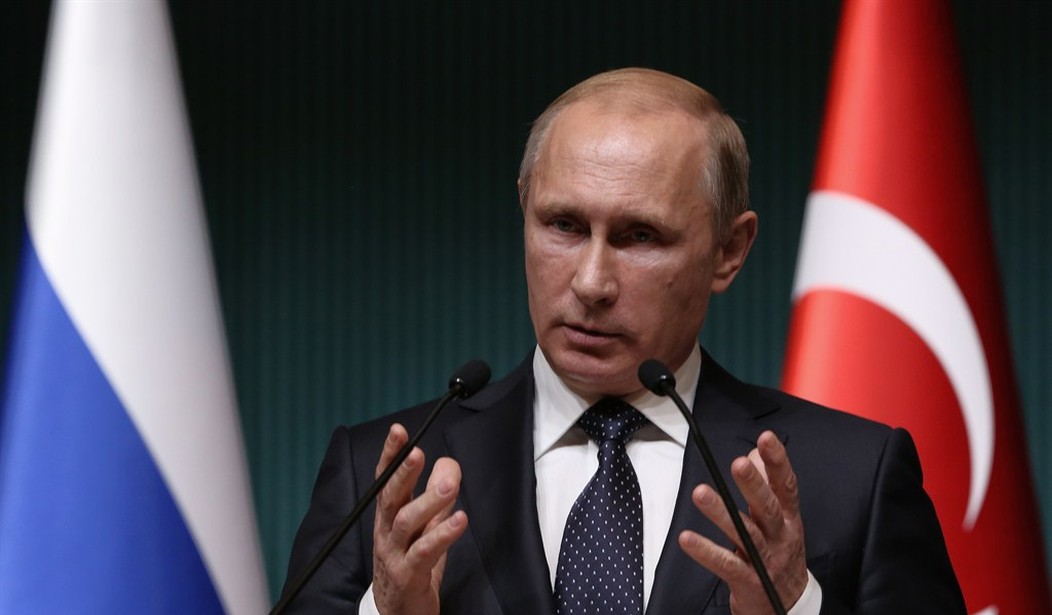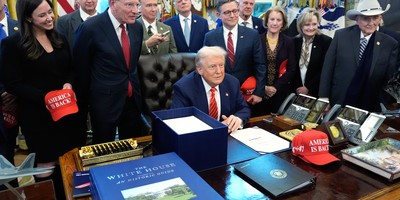Russia’s President Vladimir Putin brazenly used his Dec. 4 speech to his nation’s parliament and government ministers to blame the West for the fallout from his choices to intervene militarily against neighboring Ukraine, to precipitate a humanitarian crisis in Crimea and to clash with his nation’s trade partners.
The effect of his actions has been to hurt the Russian economy, to strain relations with the West and to damage the value of his nation’s currency, the ruble. Putin’s remarks seem designed to prepare his nation’s people for further repercussions from his faltering policies that also have led to rising food prices, which hit low- and moderate-income Russians particularly hard.
Putin seems willing to kick to the curb the goodwill built by former Russian President Mikhail Gorbachev, whose popularity with Americans was on display when people reached out to shake his hand after he stopped his motorcade during a 1987 visit to Washington, D.C. Gorbachev, who presided over the break-up of the former Soviet Union and championed “glasnost” (openness) with the West, cautioned recently that the rising East-West tensions threatened to push the world toward a new Cold War, 25 years after the fall of the Berlin Wall on November 9, 1989.
In an odd twist for the leader of a country that has persecuted religious groups, Putin used his speech to recall the history of Russia’s conversion to Christianity, after a Kiev prince called Vladimir the Saint conquered the Greek trade colony of Khersones, which has become the city of Sevastopol in the Ukraine. Putin claimed that Russians view that historic site on a seaside port of the Crimean peninsula as having the same “sacral and civilizational importance” as Temple Mount in Jerusalem for Muslims and Jews.
Recommended
But his support of separatists in Crimea has come at a high price in the number of lives lost and diminished.
A joint statement of the UN-Ukraine Commission on Dec. 2 condemned Russia’s military build-up in Crimea, as well as the worsening human rights situation on the Crimean peninsula.
“We call on Russia to reverse its illegal and illegitimate self-declared ‘annexation’ of Crimea, which we do not and will not recognize, and to respect the rights of the local population, including the native Crimean Tatars,” according to the joint statement. “Russia’s actions undermine the security of Ukraine and have serious implications for the stability and security of the entire Euro-Atlantic area. In that regard, we are also concerned with Russia’s stated plans for further military build-up on the Black Sea, which will potentially have further implications on the stability of the region.”
Amid Putin’s increasing willingness to discuss the possibility of war with the West, France’s Defense Minister Jean-Yves Le Drian said on Dec. 5 that two warships Russia planned to buy from his country may never be delivered. The ships, priced at $1.5 billion, are designed to transport hundreds of troops to a battlefield by sea, along with tanks, helicopters and other military equipment.
Despite Putin calling in his Dec. 4 speech for Russian oligarchs to return wealth to their native country from overseas by declaring that a full amnesty would be offered, without any interest or penalties, it seems unlikely to achieve much in the way of tangible results. Such promises are doubtful to sway anyone with large sums to put their fortunes at risk by bringing the money back to Russia, which has a reputation of uneven and even punitive regulation of its businesses.
Indeed, Russia now is on the verge of a recession, if not even further economic decline. Inflation there is near 10 percent.
As Russia’s economy struggles and its currency drops precipitously in value, the U.S. economy is on the rise. The U.S. Labor Department reported on Dec. 5 that employers added 321,000 jobs in November to beat the consensus forecasts of economists and mark the 10th consecutive month of net job gains that top 200,000.
While the United States is gaining strength economically and Russia is faltering, the latter country also is facing a revival of an insurgency in Chechnya, where a major gun battle took place shortly before Putin’s speech between security forces and militants. That fighting left 20 people dead and marked the first such fatal clash between the sides in years.
It seems inconceivable that Putin’s policies will win the support of many well-educated, young Russians who realize the West consistently has achieved higher standards of living as Russia has been lagging economically. At the same time, Putin’s foreign policies are causing thousands of deaths in southeastern Ukraine where he is supporting and arming separatists who are waging war in the region.
Natural resource-rich Russia also has been hurt by the falling price of oil. Putin has blamed that plunge on speculators and the West, even though the pricing of that commodity has changed dramatically for short periods in the past.
For example, oil plunged in 2008 amid a global financial crisis to $33 a barrel mid-December, after reaching $145 a barrel in July of that year. As recently as 1998 and 1986, oil dropped below $10 a barrel. Thus, Putin’s claims seem meritless but his assertions may sway certain Russians who want to believe in their nation’s leader.
However, Putin needs to cling to the supporters he can find domestically since he clearly is casting aside relationships with those in the West who could help Russians economically and diplomatically, if Russia had a leader who was willing to collaborate.
Paul Dykewicz is the editorial director of Eagle Financial Publications, a columnist for Townhall and Townhall Finance, and the author of a new inspirational book, “Holy Smokes! Golden Guidance from Notre Dame’s Championship Chaplain.”

























Join the conversation as a VIP Member